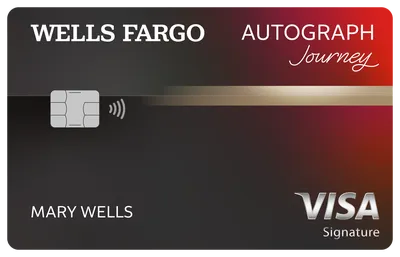CardsFTW #97: The CFPB Can’t Stop
Plus, a new Wells Fargo Card and More Zelle
CFPB Announces New Late Fee Rule, Immediately Gets Sued

For months, industry rumors have been rampant that the CFPB would be implementing new regulations on late fees at major credit card issuers. Last week, the agency released the final ruling, introducing a slew of new rules and notices from the CFPB.
The Consumer Financial Protection Bureau (CFPB or Bureau) amends Regulation Z, which implements the Truth in Lending Act (TILA), to address late fees charged by card issuers that together with their affiliates have one million or more open credit card accounts (referred to as “Larger Card Issuers” herein). This final rule adopts a late fee safe harbor threshold of $8 for those issuers and provides that the annual adjustments to reflect changes in the Consumer Price Index (CPI) do not apply to this $8 amount.
Historically, late fees from “larger card issuers” often range from $25-35 per instance, which brings this to be a pretty substantial change. Late fees and their application have long been an area of regulatory focus. Back in the 1990s, FirstUSA (later acquired by BankOne and eventually Chase) was hit with a string of lawsuits and enforcement actions related to late-posting of payments aimed at increasing fee and interest revenue.
Almost immediately after the final rules were published, a bank trade group filed a lawsuit in Texas to block the rule’s enforcement. The litigation is backed by the American Bankers Association, the Consumer Bankers Association, the U.S. Chamber of Commerce, and three Texas business associations. The complaint makes the usual argument that “the bureau violated laws about agency rule-making and exceeded its statutory authority, and argues that consumers will be financially harmed if the rule takes effect.”
There is also an argument that banks manage products like a balloon: if you squeeze on one part, then another part expands. As banks earn less income via late fees, they may compensate with other fees, reduced benefits, or higher interest rates.
Is it a good thing that the CFPB is regulating these fees? I don’t know. I’m not sure if $25 is that much more punitive than $8 or why $8 was the choice. I think a lot of these moves are ultimately political, so this may be more to show that the government is fighting back against big banks.
For the fintech crowd, the definition of a large issuer means that most fintech programs don’t qualify and can charge a larger fee. Will they? I think it will be hard to present yourself as an innovative, user-friendly option with a higher late fee. Also, it could be an interesting signal: When a sponsor bank hits one million accounts across its portfolio, it will need all of its partners to reduce their fees. Should be interesting to watch.
New Wells Fargo Travel Card

It’s been a few weeks since we’ve seen a larger card issuer (sorry, new favorite phrase) launch a new credit card product. Wells Fargo is continuing its push to grow its card market share with more competitive products. The new Wells Fargo Autograph Journey℠ Card carries a $95 annual fee and launches nationwide on March 20th. The card's competitive features include:
- Signup bonus of 60,000 points after spending $4,000 in the first 3 months
- Unlimited 5x points on hotels, 4x points on airlines, 3x points on other travel and dining, 1x on other purchases
- $50 annual statement credit for airfare purchases
- No foreign transaction fees
New to Wells Fargo is the ability to transfer points from their program to travel partners, which includes Choice Privileges, Air France‑KLM Flying Blue, Avianca LifeMiles, British Airways Executive Club, AerClub, and Iberia Plus. Based on this list, I am guessing that Ascenda is the travel platform behind the card. Ascenda also powers programs like the Bilt Rewards card (also issued by Wells Fargo). The major domestic airlines and hotels typically have exclusive relationships with their card partners, so you won’t see transfers to American Airlines or Delta anytime soon.
Savvy travelers will figure out how to transfer their miles around in an effective way, but I am curious if this card will slant towards mile optimizers as a result more than a simpler-to-understand program. Either way, more competition in the space is a good thing.
Zelle and Cards

Zelle is not a card, and this is CardsFTW, but a couple of items made me want to touch on the topic this week because Zelle is often positioned as an alternative to cards.
Zelle’s owner, Early Warning Services, shared last week that payment volume jumped 28% last year to $806B. Pretty impressive. For comparison, according to Nilson, credit and debit card transactions totaled $11.04T in 2023, up 1.2% overall from 2022, which means that Zelle volume is under 8% of total card volume.[1]
Zelle has had their fair share of struggles with scams, and this latest press release highlights that “Early Warning financial institutions cautioned users more than 700 million times before they made payments.” Is that something to be proud of?
We had an interesting Zelle experience this past weekend that made me love credit cards even more. My wife purchased some artwork, and the artist requested a Zelle payment. She doesn’t use Zelle much, it was a new recipient, and a larger amount, so our bank blocked the transaction. The error message told us to call. So we did. but the call center was closed. We called another phone number from the debit card and were told to call after 8:00 am the next day.
What a bad experience. With cards, we can get other ways to verify transactions, we have dispute rights, and the payment could have happened instantly. I think Zelle has a long way to go.
Me, Elsewhere
A few weeks ago, we surveyed the This Week in Fintech community via email, social, and Slack to determine where fintech folks bank in the fintech world. Today, we shared the results in Where do fintech people bank?
CardsFTW
CardsFTW is a weekly newsletter, released most Wednesdays, that offers insights and analysis on new products in the credit and debit card industry for consumers and providers. CardsFTW is authored and published by Matthew Goldman and Ellen Perl of Totavi, LLC. Totavi is a boutique consulting firm specializing in fintech. We bring real operational experience that varies from the earliest days of a startup to high-growth phases and public company leadership. Visit www.totavi.com to learn more.
- Nilson Report, February 2024, Issue 1257 ↩︎
